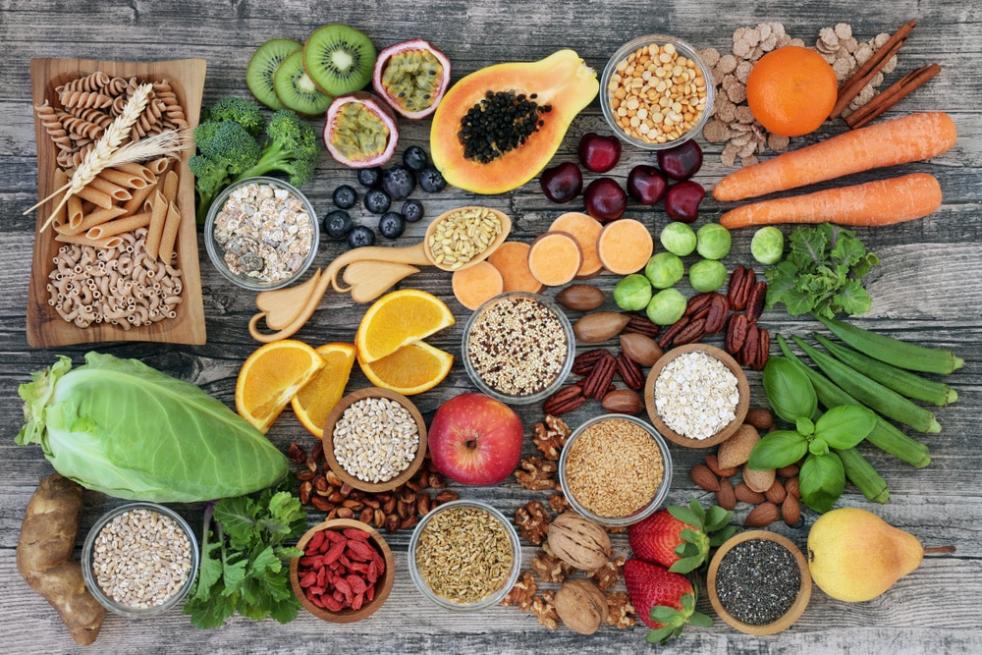How Can I Make Sure I'm Getting Enough Protein on a Plant-Based Diet?
Adopting a plant-based diet offers numerous health benefits, but concerns often arise about meeting protein requirements. This article delves into the importance of protein, the challenges of obtaining it on a plant-based diet, and effective strategies for ensuring adequate protein intake.

I. Protein Requirements
Daily Protein Intake Recommendations For Adults:
- 0.8 grams of protein per kilogram of body weight (0.36 grams per pound)
- For a 150-pound person, this translates to approximately 54 grams of protein daily
Factors Affecting Protein Needs:
- Age: Protein needs increase with age due to decreased absorption and utilization
- Activity Level: Active individuals require more protein for muscle repair and growth
- Health Conditions: Certain medical conditions may necessitate higher protein intake
Importance Of Meeting Protein Requirements:
- Essential for building and repairing tissues, producing hormones and enzymes, and transporting oxygen
- Supports immune function, muscle strength, and bone health
- Helps maintain a healthy weight and reduce the risk of chronic diseases
II. Plant-Based Protein Sources
High-Protein Plant Foods:
- Legumes (beans, lentils, peas): 1 cup cooked lentils provides 18 grams of protein
- Nuts and Seeds: 1 ounce of almonds provides 6 grams of protein
- Whole Grains: 1 cup cooked quinoa provides 8 grams of protein
- Soy Products (tofu, tempeh, edamame): 3 ounces of tofu provides 8 grams of protein
- Vegetables (spinach, broccoli, kale): 1 cup cooked spinach provides 5 grams of protein
Protein-Rich Plant-Based Meals And Snacks:
- Lentil Soup with Whole Grain Bread
- Chickpea and Vegetable Curry with Brown Rice
- Tofu Stir-Fry with Quinoa
- Hummus and Veggie Wrap
- Chia Seed Pudding with Berries and Nuts
Importance Of Variety In Protein Sources:
- Different plant foods contain different amino acids, which are the building blocks of protein
- Consuming a variety of plant proteins ensures a balanced intake of all essential amino acids
III. Strategies For Increasing Protein Intake
Incorporate Protein-Rich Foods Into Every Meal And Snack:
- Add beans or lentils to salads, soups, and stews
- Snack on nuts, seeds, or yogurt
- Use tofu or tempeh as a meat substitute in sandwiches, stir-fries, and curries
Use Protein Powders And Supplements (if Necessary):
- Consider protein powders made from pea, hemp, or brown rice for added protein
- Use protein supplements under the guidance of a healthcare provider
Combine Complementary Proteins To Create Complete Protein Meals:
- Pair legumes with grains (rice, quinoa, bread) or nuts and seeds
- Combine tofu with vegetables and whole grains
Consider Protein Fortification Of Plant-Based Foods:
- Add tofu or protein powder to smoothies
- Use fortified plant-based milk or yogurt
IV. Tips For Enhancing Protein Absorption
Consume Protein With A Source Of Vitamin C:
- Vitamin C improves iron absorption, which is important for protein metabolism
- Pair plant-based protein sources with citrus fruits, bell peppers, or tomatoes
Soak And Cook Legumes Properly:
- Soaking and cooking legumes reduces anti-nutrients that can interfere with protein absorption
- Rinse legumes thoroughly before cooking
Ferment Plant-Based Foods:
- Fermentation improves digestibility and nutrient absorption
- Consider fermented foods like tempeh, miso, and sauerkraut
V. Addressing Concerns And Misconceptions
Debunking The Myth Of Protein Deficiency:
- Plant-based diets can provide adequate protein with proper planning and variety
- Many plant foods are rich in protein, and combining different sources ensures a balanced intake
Addressing Concerns About Protein Quality And Amino Acid Balance:
- Plant proteins are of high quality and contain all essential amino acids
- Consuming a variety of plant proteins ensures a balanced intake of all essential amino acids
Highlighting The Health Benefits Of A Plant-Based Diet:
- Plant-based diets have been associated with a reduced risk of heart disease, stroke, type 2 diabetes, and certain cancers
- Plant-based diets are rich in fiber, antioxidants, and other beneficial nutrients
VI. Conclusion
A plant-based diet can provide adequate protein with careful planning and variety. By incorporating a variety of protein-rich plant foods into every meal and snack, using protein powders and supplements if necessary, and combining complementary proteins, individuals can ensure they meet their protein requirements. Additionally, enhancing protein absorption through strategies like consuming vitamin C and fermenting plant-based foods can further optimize protein utilization. Addressing concerns and misconceptions about protein quality and amino acid balance helps dispel myths and highlights the health benefits associated with a plant-based diet.
For personalized guidance and support in meeting protein requirements on a plant-based diet, consulting with a registered dietitian or healthcare provider is recommended.
YesNo

Leave a Reply